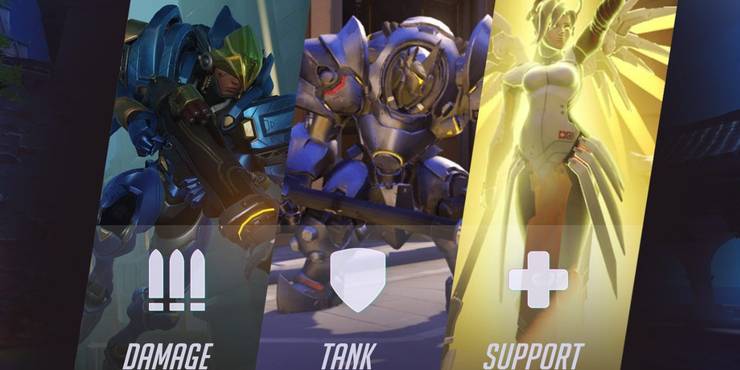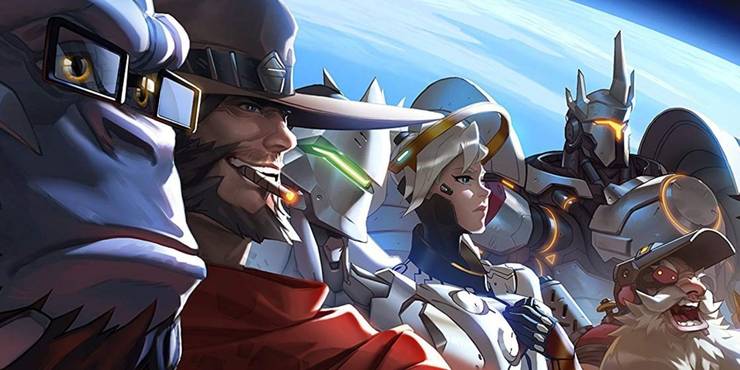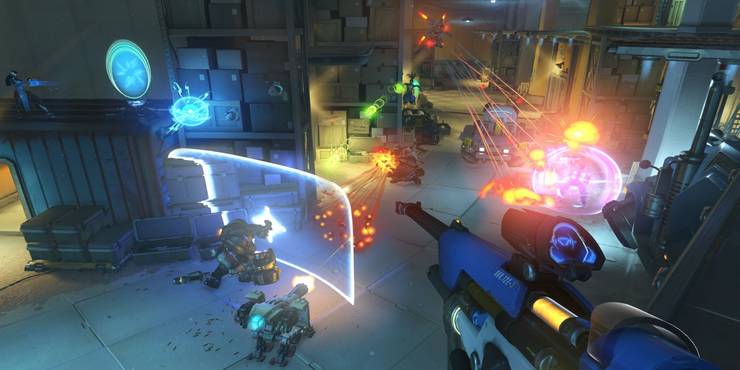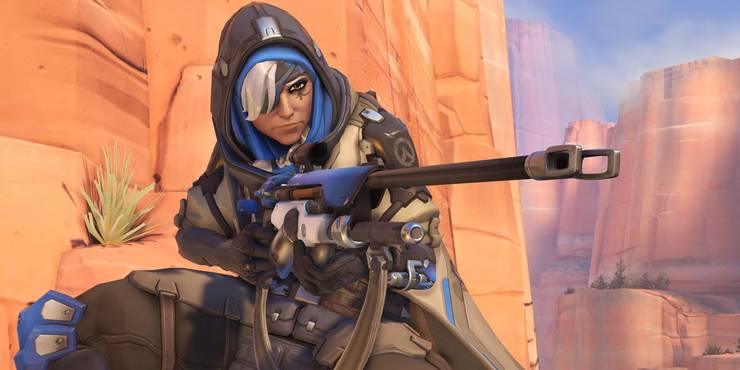The highly competitive online community of Overwatch is an insanely technical game that rewards teamwork and individual skill almost simultaneously. The game requires a firm understanding of hero abilities alongside role philosophy. Overwatch rewards a firm understanding of how to communicate as a team alongside general first-person shooter skills. However, a skilled shooter is only as good as the team he plays with so understanding how to work well with your team is essential to success. There is a lot of depth to mastering Overwatch and can be frustrating if not an intimidating obstacle to overcome.
For avid fans of Overwatch, the concepts mentioned of teamwork and hero knowledge are as simple as riding a bike. But that same player may be stuck in a particular rank or having difficulty even surviving the intense ecosystem of online ranked play. To truly excel as a competitive player you must master some advanced philosophy associated with team focused shooters. This guide will provide some advanced advice to send aspiring competitive players on the road to success. These tips, if memorized, will certainly increase a player’s competitive potential.
Understanding Your Role in Overwatch

There are three main roles found inside of Overwatch. These roles include Damage, Tank, and Support (also known as healers). Each player should practice and master one of these roles to fill one of the major needs of an Overwatch team.
The first role and the most popular of the three is the role of a Damage character. Damage heroes, as their name implies, excel at dishing out high damage and serving some frustrating eliminations to the enemy team. There are three main categories of Damage heroes and each one has a widely different utility than the others. The first category of Damage hero is the illusive flanking heroes, these include heroes such as Genji, Tracer, or Reaper. These flanking heroes are meant to harass and chip away at the enemy team’s key heroes and players while staying mobile and evasive. Compare these flanking heroes to the ranged or area denial heroes. Ranged heroes excel at fighting from a distance and hiding behind their powerful tanks, these include the powerful Widowmaker or Hanzo. Ranged heroes are typically the hardest to master. While area denial heroes excel at keeping an enemy away from important choke points or capture zones, such as Junkrat or Mei. Every damage niche plays a vital role in a team’s success.
Tanks consist of two main types, the main tank, and the off-tank. The main tank typically holds the front line and provides the most protection for their teams, such as Reinhardt, Winston, or Orisa. These are the front line of defense for a team and are vital for success. An off-tank typically are high health bullet sponges that provide additional support and can unleash powerful damage. These include Roadhog, Zarya, and Wreckingball.
Support heroes play arguably the most important role for a team. The two types of supports are the main support and off-support. Similar to main and off tanks, the main support does most of the healing for a team. Think of the powerful Mercy or Ana, both provide immense amounts of healing for a team. The off-support are heroes who have powerful healing abilities alongside strong offensive capabilities. Heroes such as Zenyatta, Lucio, or Baptiste fit this archetype. Off-supports place their value on their other powerful abilities and less emphasis on their healing abilities.
Mastering and Countering Team Compositions in Overwatch

One of the key concepts to understand before tackling competitive Overwatch is the idea of team compositions or team comps for short. Team comps are a particular combination of characters that synergize well with one another to provide optimal performance.
Two examples of powerful team comps are the infamous Dive comp, a highly mobile team that excels at quickly swarming a team or a particular enemy and the Bunker comp. Dive comps, as mentioned, excel at quick and devastating approaches. The Heroes required to make this comp work need to have rapid abilities that allow them to quickly get in and out of team fights. Compare this comp to the bunker comp which roots its strength to holding ground behind powerful main tank shields to deny an enemy a particular choke point or objective.
These comps are one of many in Overwatch and building a comp and learning how to counter a powerful comp will send an aspiring player to the upper echelon of ranked play in no time.
Communicating in Overwatch

The least surprising tip on this list while being the most crucial one, communication is the key to success. Learning how to effectively and efficiently communicate with your team can assist success in intense team fights.
Communication is more complex than simply asking for healing or to group up. Learning how to call out an enemy’s movement or to back away from a fight is vital to survival. It is important to stay alert to potential flanks or when an enemy is out of position to both capitalize on mistakes or to optimize your strategy.
The best way to train this idea is to both play tons of matches and to watch high-level gameplay. Learning how pro players call out can help your style by emulating their success. This will hone your skills and polish your success as a team.
Learning Positioning in Overwatch

One of the more abstract tips to improve in competitive Overwatch is learning the key elements of positioning.
This concept will require excellent communication between a team and is one of the hardest to implement, especially for solo queue players. But a defensive team that effectively utilizes high ground over an offense team can spell an easy victory. Or an offense team learning how to quickly switch to a room with better cover can turn the tides of battle in one quick instance of switching position.
Learning how to position your team can easily increase your success in online play. So study the different maps of Overwatch and formulate optimal positioning to counter or succeed in both Offense and Defense.
Overwatch is available on PS4, Xbox One, and PC.



